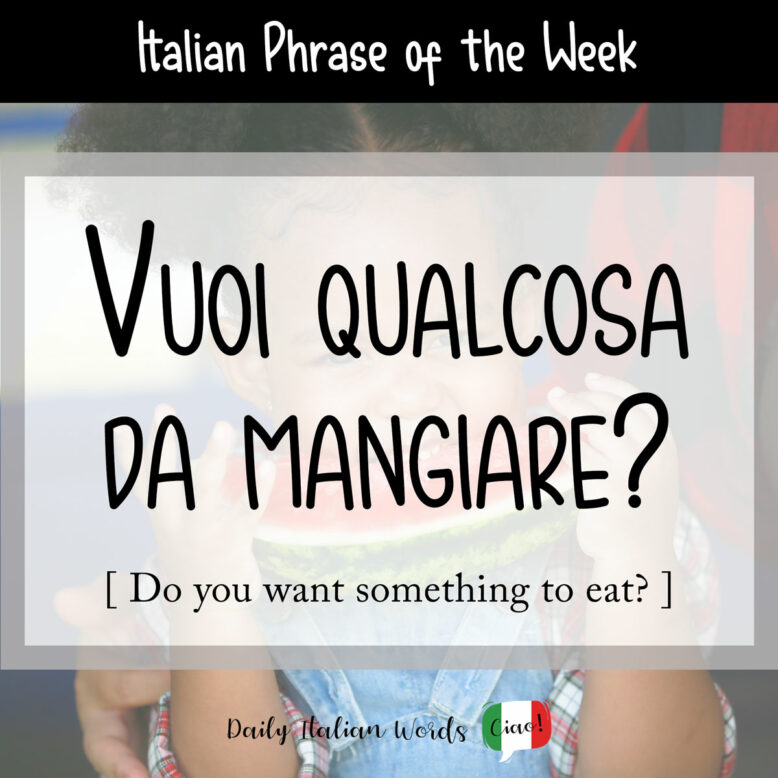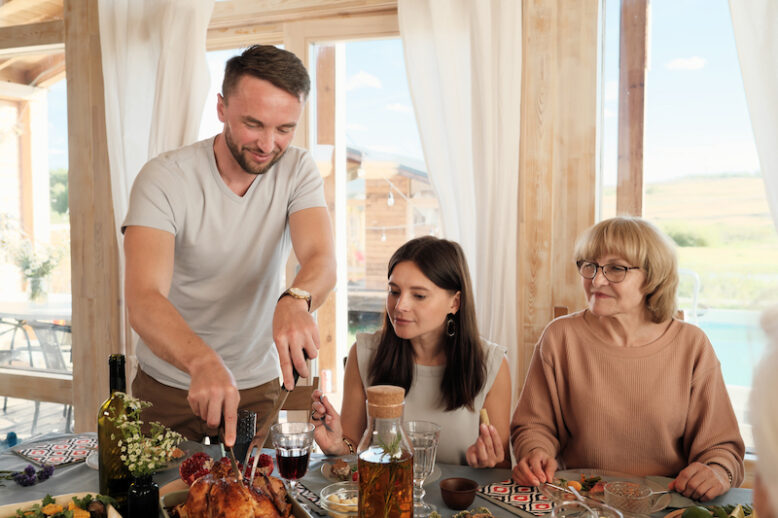A question you can expect to hear when visiting friends and family in Italy is Vuoi qualcosa da mangiare? which translates as Do you want something to eat?
Vuoi qualcosa da mangiare?
Do you want something to eat?

Let’s take a quick look at the four words that make up this phrase:
vuoi
Vuoi is the second-person singular of the verb volere (to want).
If you were to address someone formally, you would have to use the third-person singular form vuole. When addressing more than one person, the second-person plural form volete is required.
>> Vuole qualcosa da mangiare?
>> Volete qualcosa da mangiare?
qualcosa
Qualcosa is the word for something or anything in Italian. It is the combination of the words qualche (some) and cosa (thing).
da
Da is a tricky preposition for learners to get their heads around because it can translate in numerous ways including from, since, when, through, how long, at, for, as and, in this case, to!
When da means to, it is often sandwiched between a noun and an infinitive verb. For example:
>> un libro da leggere = a book to read
>> qualcuno da amare = someone to love
Mangiare is the infinitive form of the verb to eat in Italian.
Colloquially, Italians frequently omit the word qualcosa altogether, creating the phrase Vuoi da mangiare? The omission of qualcosa can also be seen in the following constructions:
- Ho qualcosa da mangiare. (I have something to eat.) >> Ho da mangiare.
- Ti darò qualcosa da mangiare. (I’ll give you something to eat.) >> Ti darò da mangiare.
An alternative version of this phrase is Vuoi mangiare qualcosa? (Do you want to eat something?).

There are a few ways in which you can respond to this question. For example:
- Sì, grazie. (Che) cosa c’è (da mangiare)? = Yes, please. What is there (to eat)?
- Sì, vorrei… = Yes, I would like…
- No, grazie. Sono a posto. = No, thanks. I’m fine.
Vuoi qualcosa da mangiare? – Sì grazie. Che cosa c’è di buono? – È rimasta un po’ di lasagna in frigo. Te la scaldo. – Hmm, perfetto!
Do you want something to eat? – Yes, please. What do you have? – There is a bit of leftover lasagna in the fridge. I’ll warm it up for you. – Yum, perfect!
Heather Broster is a graduate with honours in linguistics from the University of Western Ontario. She is an aspiring polyglot, proficient in English and Italian, as well as Japanese, Welsh, and French to varying degrees of fluency. Originally from Toronto, Heather has resided in various countries, notably Italy for a period of six years. Her primary focus lies in the fields of language acquisition, education, and bilingual instruction.


